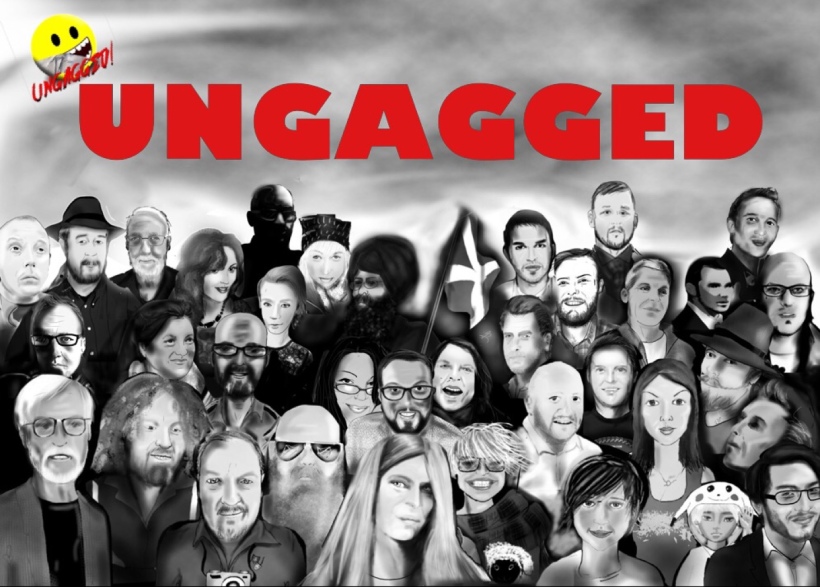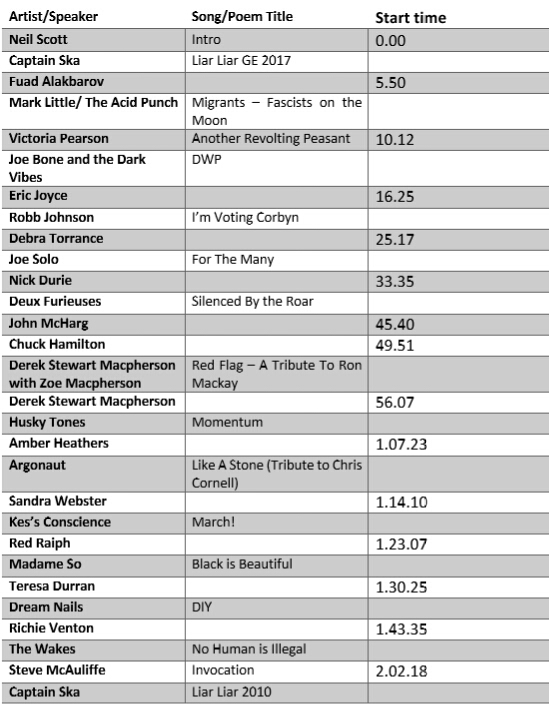
After Tom Perez’s “Night of the Long Knives” purge of progressives and entrenchment of centrists at the Democratic National Committee, no self-respecting leftist can hold anything for the Democratic Party but contempt. A thoroughly corrupt organization cannot be reformed, period. Capitalism cannot be reformed. Neoliberal bodies such as the EU or the UK of GB and NI, and the US of A for that matter, cannot be reformed. The U.S. Democratic Party cannot be reformed. With the direction of the Democratic Party now locked in with a jammed autopilot headed for the same neoliberal destination to which it was been turned since the late 1970s, it’s time for any true leftist remaining in the party under delusions of changing its nature to say “No!”, or rather, “No more!” to the Scorpion and to abandon ship. In the second decade of the 21st century, a vote for a Democrat is a vote for Trump just as much as a vote for a Republican. Resistance is not futile, but hoping for change from an establishment whose foundation is the status quo is.
Speaking of the 100th anniversary of the Russian Revolution, which has been a topic of much discussion this year, I’d like to draw your attention to the fact that in the 20th century there was just not one major workers’ revolution on the planet but two. The revolutions in China, Cuba, Viet Nam, Nicaragua, etc., were anti-colonial more than proletarian and tainted by the fact they followed the post-Revolution Comintern doctrine, which is why I don’t include them. The other revolution I’m talking about is the Iranian Revolution, the one which eventually overthrew the Shah and actually began in the summer of 1977.
In June 1977, after a long train of abuses and usurpations inflicted by the imperial government returned to power by the mullahs in 1953, the police were sent into South Tehran to clear the slums for Pahlavi-style gentrification. Thousands fought back and continued to do so throughout the summer. On 27 August that summer, the Shah’s police finally gave up and left. During this time, other forces began to stir. Mosaddegh’s National Front woke up, the Bazaar Association of small businesses reorganized, and the Writers Guild began to call for radical change.
Later in the fall, the student movement for democracy was born and the Khomeinist mullahs organized into the Combatant Clergy Association. On this latter, it’s important to recognize that in Iran at the time, there were two strains of Islamism, the Black Islamism of Khomeini which was fundmentalist, reactionary, and clericalist, and the red Islamism of Ali Shariati, which was more of a Muslim form of Christian Liberation Theology and progressive, popularist, and democratic. One was for the benefit of the few, the other was for the benefit of the many.
By December 1977, the National Front and the Freedom Movement, an organization which represented a point between its secular partner and the Red Islamists, announced the the Iranian Committee for the Defense of Freedom and Human Rights, brainchild of Red Islamist Ayatollah Abolfazl Zanjani and Fatollah Banisadr, brother of the later president Abolhassan Banisadr.
Though students, bazaaris, and clergy led and participated in many of the demonstrations that began in January 1978, it was the repeated massive local and national strikes by workers throughout the country which brought down the government. Though such actions began in 1977, they did not begin in earnest until a year later in the fall of 1978. Strikes shut down the country, particularly after oil industry workers joined the struggle and began to issue political as well as industrial demands. Strikes of workers were invariably supported by sympathy strikes by bazaaris and students. The economy of the country all but froze solid. Workers took over factories and plants and refineries and ran them through shoras, which translated into Russian is soviets. Community governance and order was maintained through komitehs, or committees, mostly controlled by workers, peasants, or other people’s groups, at least at first.
By the end of 1978, the Khomeinists had adopted much of the rhetoric of its Red Islamist counterparts following the tenets of Ali Shariati, which is when they began to talk about raising the fortunes of the Mostazafin, the Dispossessed.
The Iranian Revolution ended with the Ten Days of February, just as the Russian Revolution ended with Ten Days in October.
Almost immediately after the victory on 11 February, Khomeini, whose full name and title at the time was Grand Ayatollah Ruhollah Mostafavi Moussavi Khomeini, organized forces to usurp control of the people, the workers, the bazaaris, the peasants, and the poor and place it in the hands of his own close acolytes.
On 12 February, he announced to formation of the Central Revolutionary Komiteh to take control of all the local komitehs.
On 24 February, he established the Central Revolutionary Court, which began executions on 5 March.
On 26 February, he repealed the progressive Family Protection Acts which provided legal protection for the rights of women in marriage.
On 7 March, Khomeini dismissed all female judges and imposed compulsory hijab on women entering government buildings, though was forced to back down temporarily on the latter by the enormous turnout in opposition the next day, International Women’s Day.
At the end of March, the population voted in a referendum in which the two options were the constitution drafted ostensibly by the Provisional Revolutionary Government but actual following explicit dictates of the Council of Islamic Revolution, or a return to constitutional monarchy under the Shah. The additional feature of the ballot not being secret ensured a 98% approval, and the Islamic Republic of Iran was proclaimed on April Fools Day.
On May Day that year, the march of 1.5 million workers through the streets of Tehran, plus countless others across the nation, signalled the beginning of a general strike against the changes being made against the will of the people. Six days later, Khomeini established the Army of the Guardians of the Revolution, or Revolutionary Guards (known in Farsi as Sepahi), to put down the general strike, rid the komitehs of secular elements, and destroy the proletarian shoras and replace them with Islamist versions. Even these latter were eventually crushed when they began to follow their own interests rather than that of the central cabal.
A year later, Khomeini went after the universities, closing them down for the Iranian Cultural Revolution carried out by the Basij-e Mostazafin, or Basiji, under the auspices of the Cultural Revolution Headquarters led by Ali Khamenei and its subordinate Islamic Holy Councils of Reconstruction. The Sepahi and the Basiji did not originate as instruments of national defense against US-instigated Iraqi aggression but as instruments of oppression.
The Iranian Revolution of 1979 bears striking resemblance on many points to the Russian Revolution of 1917: both usurped revolutions from broad-based coalitions of disparate forces led by workers; both had significant 10-day periods, “Ten Days that Shook the World” vs. “Ten Days that Changed Iran”; both imposed constitutions on their respective countries without any debate; both turned on and slaughtered allies that had helped them come to power; both faced invasion and war almost immediately after coming to power; both used those wars as an excuse to eliminate dissidents in mass numbers; both carried out mass purges and executions a decade after their assumption of power; both became one party states – the Communist Party in the USSR and the Party of God in the IRI; and both were led by bitter, vindictive, unscrupulous long-term exiles who lied about their intentions, gave lip service to the goals of the true left, and pursued absolute power in the name of ideology and the establishment of a totalitarian state.
Tune in next time for a short critique of ideological Leninism and brief details of what a truly Cooperative Commonwealth would look like.


